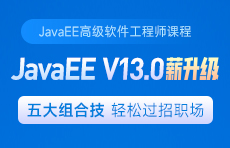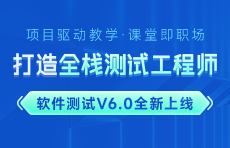在Java中,什么时候用重载,什么时候用重写?
更新时间:2023年03月31日10时10分 来源:传智教育 浏览次数:

在Java中,重载(overloading)和重写(overriding)是两个不同的概念,它们的应用场景也不同。
重载是指在同一个类中定义了多个方法,它们的方法名相同但参数列表不同。重载的目的是方便程序员,使得程序代码更加简洁,更易读懂。
重写是指子类重写了父类的方法,方法名和参数列表都相同。重写的目的是为了改变父类方法的行为,实现多态性。
下面是一些示例代码:
重载的例子:
public class OverloadExample {
public void print(int i) {
System.out.println("Integer: " + i);
}
public void print(double d) {
System.out.println("Double: " + d);
}
public void print(String s) {
System.out.println("String: " + s);
}
}
// 在其他类中使用 OverloadExample 中的方法
OverloadExample oe = new OverloadExample();
oe.print(1);
oe.print(2.0);
oe.print("hello");
上述代码中,OverloadExample 类中定义了三个方法,分别使用了不同的参数类型。在其他类中,可以通过对象oe调用这些方法,Java会根据传入的参数类型选择合适的方法进行调用。
重写的例子:
public class Animal {
public void speak() {
System.out.println("I am an animal");
}
}
public class Cat extends Animal {
@Override
public void speak() {
System.out.println("I am a cat");
}
}
// 在其他类中使用 Cat 中的方法
Animal animal = new Cat();
animal.speak();
上述代码中,Animal类中定义了一个speak方法,Cat类继承了Animal类并重写了speak方法。在其他类中,可以创建一个Cat对象,并将其赋值给Animal类型的变量animal。调用animal的speak方法时,实际上调用的是 Cat类中重写的speak方法。这就体现了多态性的特点。


















 AI智能应用开发
AI智能应用开发 AI大模型开发(Python)
AI大模型开发(Python) AI鸿蒙开发
AI鸿蒙开发 AI嵌入式+机器人开发
AI嵌入式+机器人开发 AI运维
AI运维 AI测试
AI测试 跨境电商运营
跨境电商运营 AI设计
AI设计 AI视频创作与直播运营
AI视频创作与直播运营 微短剧拍摄剪辑
微短剧拍摄剪辑 C/C++
C/C++ 狂野架构师
狂野架构师





















